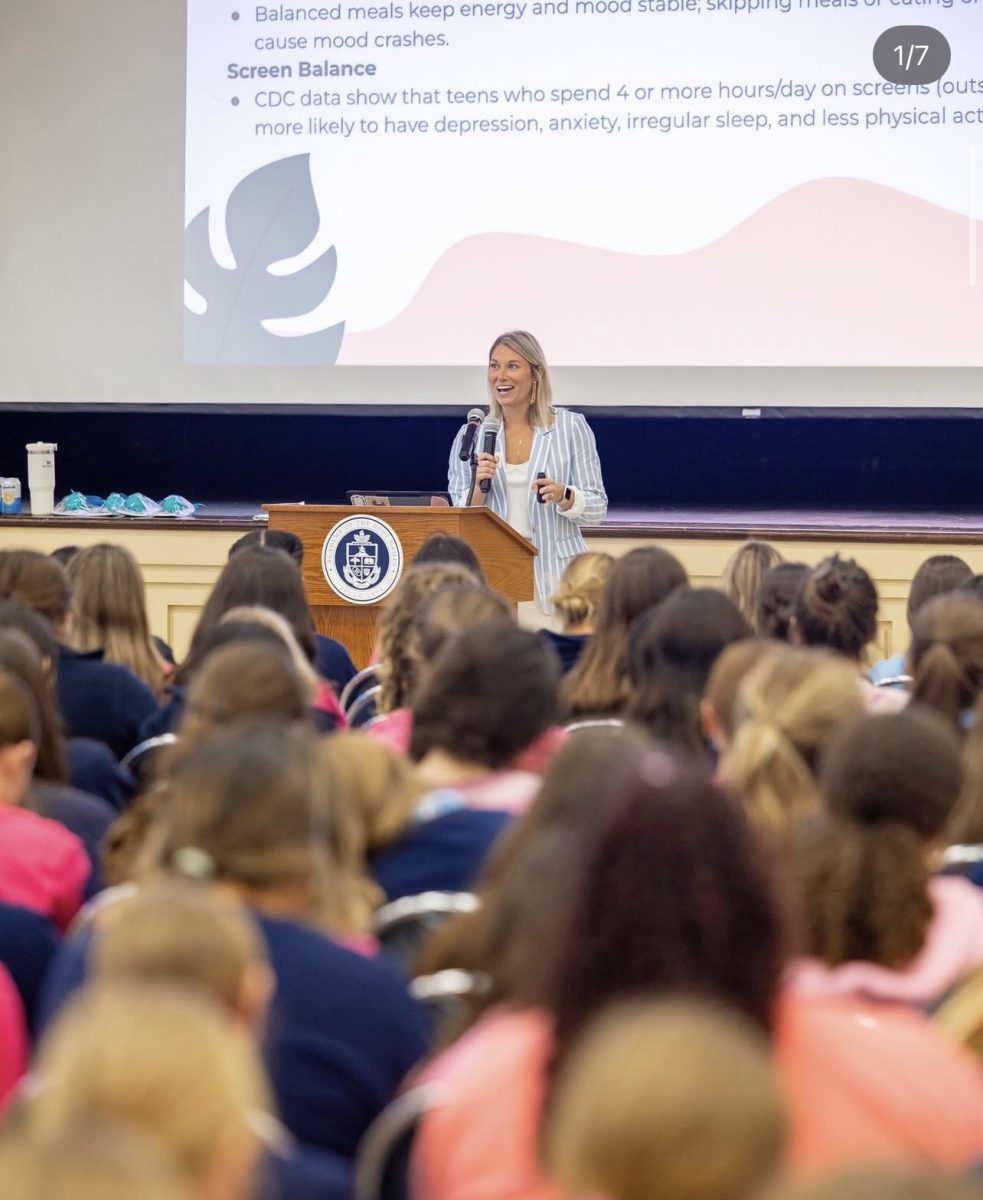Beginning this school year, the Academy administration has enacted a new phone policy, requiring students to either place their phones inside classroom bins or leave them at home. This policy prevents students from being able to access their phones during the school day. Because of this phone policy, students begin their day by dropping off their phones at their last set so they can get them back after class at the end of the day. One of the main reasons the Academy administration has implemented this policy is due to the underlying concern with cell phones causing distractability.
Academy high school principal, Jeane McNamara explains the purpose of the cell phone policy by saying, “Jonathan Haidt’s Book, The Anxious Generation[…]cites specifically four foundational harms that result from cell phones: social deprivation, sleep deprivation, attention fragmentation (i.e., distractability), and addiction.”
Each of these negative effects of excessive cell phone usage can prevent an individual from physically and mentally feeling their best.

Social deprivation: Social deprivation involves the lack of proper social interaction that is caused by a loss of interest in communication with others. While phones help connect people in very accessible ways, phones can also cause people to refrain from socializing because they are too occupied with an activity on their phone. In some cases, texting may take the place of in person communication. Any significant loss of fostering in person connections with others can harm an individual’s social adaptability.
Sleep deprivation: When someone is deprived of sleep, they are not getting enough sleep that is necessary for their bodies to function. According to the CDC, “teenagers aged 13–18 years should sleep 8–10 hours per 24 hours.” Activities on the phone can become an easy distraction that keeps people stay awake late at night when they should be getting sleep. Phone notifications and alerts can also disrupt sleep by waking people up. Getting enough sleep is vital in order to feel your best and be able to focus throughout the day.
Attention fragmentation and Addiction: Phones offer many entertaining platforms that often become easy to lose track of time on. Because of this, individuals may become addicted to activities on their cell phones, which unfortunately take the place of other things someone has to do. As life and wellness coach Dennis Buttimer explains, phone addiction is often caused by dopamine.
He says, “When we check our phones, our brains release a small amount of dopamine. Dopamine motivates us to take action and each time we hear a notification, we check our device. The problem is this dopamine boost is temporary and leads to a letdown. Our brains want more dopamine, which triggers the habit of checking our phones constantly throughout the day.” The more time spent on phones increases the amount of dopamine individuals are exposed to, therefore, causing addiction and reducing their attention span.
Additionally, McNamara said, “Haidt cites that studies on college students demonstrate that performance on problem tasks were best when cell phones were nowhere in the proximity to the individual (e.g., phone in another room, vs. next to them). The human brain, especially in adolescents, is still forming and is not programmed to multitask.”
This research correlates students being unable to focus due to excessive cell phone usage.
While cell phones may conjure some of these negative consequences mentioned, they also have many positive benefits, especially for young people. Cell phones are often used for communication, education, entertainment, connectivity, and much more. Messaging through texts and social media allow people to connect and communicate with their friends they may not see very often. Phones also offer many educational opportunities like access to research, the news, and cultures from across the world. When time management is a regular practice, utilizing the benefits of cell phones is even easier.
In regards to time management, Gabby Marquez (’25) says, “I usually put a time limit on my social media apps or I charge my phone in a different room so I can focus on studying. On the other hand, my phone is helpful since I can access Google Drive from anywhere, allowing me to study my notes even when I do not have my laptop.”
Many students are frustrated that the phone policy prevents them from contacting their parents during the school day. Sophomore Katiana Paredes said, “Something frustrating about the cell phone policy is how I am unable to text or call my mom during the school day to tell her about something important that has happened.”
Despite potential frustrations with the phone policy, learning time management with technology is still important. In order to prevent phones from becoming distracting, consider leaving it in another room or turning off its notifications. Additionally, screen time limits and planners are helpful as well.














